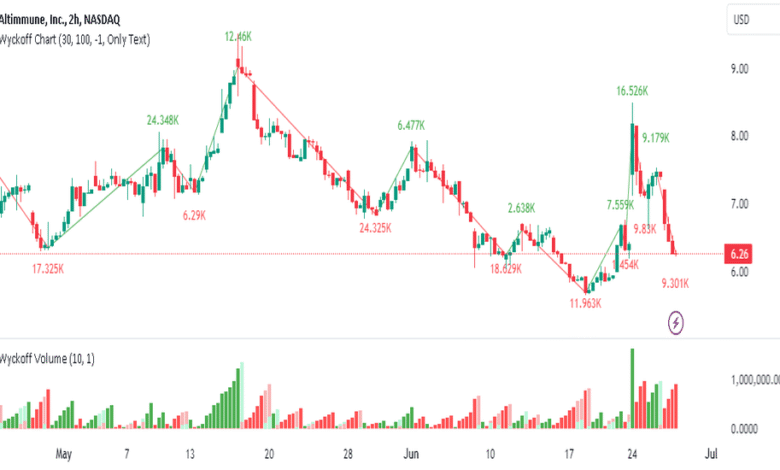Alt Stock: The Future of Investing Beyond the Traditional Market

Introduction: What Exactly is Alt Stock?
When people hear the term “alt stock,” they usually think it’s just another fancy word cooked up by financial experts. But in reality, “alt stock” refers to alternative stocks or alternative investment opportunities outside the mainstream market. These are not your regular blue-chip companies listed on the Dow Jones or S&P 500. Instead, alt stocks can include niche companies, emerging market equities, private shares, tokenized stocks, or even hybrid investment models connected to crypto and blockchain technologies.
The reason why alt stocks are becoming a hot topic is because investors are looking for ways to diversify their portfolios. Traditional stocks are often tied to the same macroeconomic factors—interest rates, inflation, and geopolitical issues. Alt stocks, on the other hand, provide exposure to different sectors, sometimes untouched by the larger market.
So, whether you’re an everyday retail investor or someone who’s been in the game for decades, understanding alt stocks is crucial. Not only do they open doors to unique opportunities, but they also challenge the idea that “safe” investing only exists within the boundaries of Wall Street.
Why Alt Stocks Are Gaining Popularity

Let’s be real: the stock market hasn’t exactly been a smooth ride over the past decade. From the 2008 financial crisis to the COVID-19 crash and inflation scares, traditional markets have been a roller coaster. This volatility has forced investors to look elsewhere for stability and higher returns. Enter alt stocks.
One of the biggest drivers behind their popularity is accessibility. With the rise of online trading platforms, fractional shares, and even blockchain tokenization, retail investors now have access to markets that were once reserved for hedge funds or institutional players. You don’t need to be a Wall Street giant anymore to own a piece of an up-and-coming biotech startup or a renewable energy firm halfway across the world.
Another reason alt stocks are buzzing is the shift in investor mindset. People, especially younger generations, are tired of the “buy Apple, Amazon, or nothing” mindset. They want to invest in companies that align with their values—be it sustainability, technology innovation, or decentralized finance. s give them that chance. They represent the future, not just the past successes of corporate America.
The Different Types of Alt Stocks
Alt stocks aren’t just one category. They’re more like a collection of different opportunities bundled under one umbrella. Here are the most common types you’ll come across:
1. Emerging Market Stocks
These are stocks from developing economies like India, Brazil, or Southeast Asian countries. While they come with higher risks, they also offer massive growth potential. Many investors bet on these markets early, hoping to catch the next economic powerhouse.
2. Sector-Specific Alt Stocks
Think clean energy, biotech, AI, or even space exploration. Traditional markets often ignore these industries until they’re already mainstream. Alt stock investors, however, thrive on being early adopters, putting their money into companies that could explode in value in the coming years.
3. Tokenized Stocks
Thanks to blockchain, companies can now issue tokenized versions of their shares. This allows investors to trade stocks like cryptocurrencies, providing faster transactions, global accessibility, and in some cases, lower fees. It’s like Wall Street meets crypto, and it’s becoming a serious alternative for tech-savvy investors.
Each type of alt stock carries its own risks and rewards. The trick is knowing which category matches your risk tolerance and long-term goals.
Benefits of Investing in Alt Stocks
If you’re wondering why you should even bother with alt stocks, here’s the deal: they come with unique advantages that traditional stocks often lack.
First, diversification is the biggest benefit. By spreading your money across traditional and alternative stocks, you’re not putting all your eggs in one basket. If the U.S. market tanks, your holdings in emerging markets or blockchain-based assets might hold up better.
Second, alt stocks often provide higher growth opportunities. While large-cap stocks like Apple or Microsoft are safe bets, their growth is relatively slow compared to a promising alt stock in a niche sector. If you hit the right one at the right time, the returns can be phenomenal.
Finally, offer personalized investing. Unlike traditional stocks, where everyone is essentially buying into the same few companies, alt stocks let you back businesses or technologies that truly resonate with you. If you’re passionate about green energy, for example, you can directly invest in startups driving that change.
The Risks You Shouldn’t Ignore
Of course, it wouldn’t be fair to paint alt stocks as some magical investment solution. They come with their own share of risks, and ignoring them can be costly.
One of the biggest risks is volatility. Many s are tied to emerging industries, and with new opportunities come huge uncertainties. A biotech firm that looks promising today could flop tomorrow if a clinical trial fails.
Another risk is liquidity. Unlike traditional stocks, which you can buy or sell in seconds, some —especially private or tokenized ones—don’t always have enough buyers and sellers in the market. That means you might get stuck holding something you can’t quickly sell.
Lastly, there’s the regulatory uncertainty. Governments are still figuring out how to regulate tokenized stocks, blockchain investments, and emerging markets. Sudden policy changes can drastically affect your holdings. That’s why research and due diligence are non-negotiable when it comes to alt stock investing.
How to Get Started with Alt Stocks
If you’re intrigued by alt stocks but unsure where to begin, the good news is: getting started is easier than you think.
The first step is to choose the right platform. Depending on the type of alt stock you’re interested in, you might need a regular brokerage, a specialized emerging market platform, or even a crypto exchange that supports tokenized stocks. Always make sure the platform is legitimate and regulated.
Next, you’ll want to educate yourself on the specific industry. Don’t just buy into a company because it sounds futuristic or trendy. If you’re investing in renewable energy, for example, take time to understand the sector’s growth potential, government policies, and competitive landscape.
Finally, start small.s can be riskier than traditional ones, so it’s smart to dip your toes in first. Build confidence, gain experience, and then increase your exposure as you become more comfortable with the market.
Alt Stock vs. Traditional Stock: Which is Right for You?
This is the million-dollar question every investor asks: should you go with traditional stocks or dive into alt stocks? The answer is—why not both?
Traditional stocks provide stability, history, and predictable returns, making them a solid foundation for any portfolio. s, on the other hand, bring growth potential, innovation, and diversification. By combining the two, you can enjoy the best of both worlds.
It really comes down to your risk tolerance and investment goals. If you’re a conservative investor nearing retirement, you might want to stick mostly to traditional stocks with just a small allocation to alt stocks. But if you’re younger and open to taking risks, alt stocks could become a larger part of your strategy.
The Future of Alt Stocks
Looking ahead, it’s clear that are not just a passing trend. With the global economy shifting, technology advancing, and investor preferences evolving, will likely become a mainstream part of investing in the next decade.
We’re already seeing this shift happen. More traditional brokers are integrating tokenized assets, and global investors are putting serious money into emerging markets and niche sectors. The line between “alternative” and “mainstream” is getting blurrier every year.
For investors, this means one thing: the earlier you understand and adopts, the better positioned you’ll be when the rest of the world catches on.
Conclusion
Alt stocks are rewriting the rules of investing. They’re not about replacing traditional stocks, but about adding depth and diversity to your financial journey. Whether it’s emerging markets, sector-specific opportunities, or tokenized shares, alt stocks give you access to areas of growth that traditional markets simply don’t cover.
Of course, they’re not risk-free. Volatility, liquidity issues, and regulatory uncertainties will always exist. But for those willing to do their homework and invest wisely, alt stocks could unlock returns that go far beyond the usual suspects of Wall Street.
In short, alt stocks are more than just a buzzword—they’re the future of smart, diversified investing.


